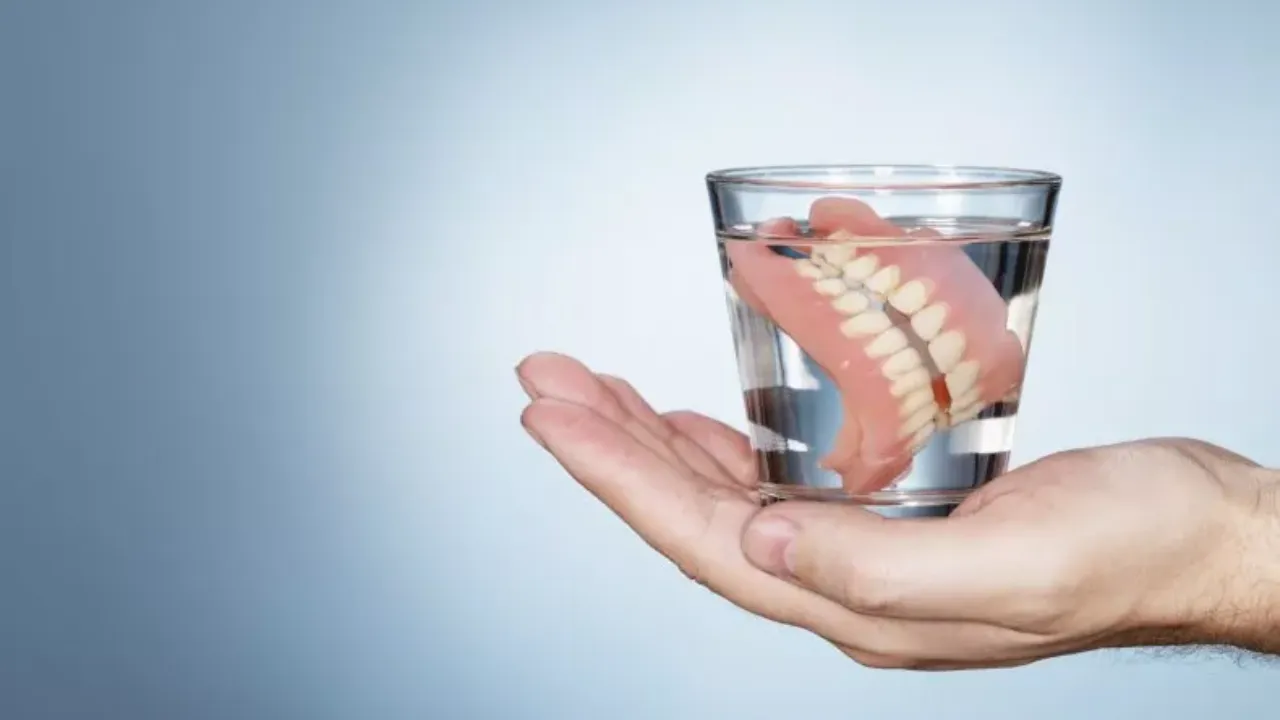
Complete Denture | Partial Denture | Immediate Denture: Pros & Cons, Procedure, Cost & More
Depending on the type of tooth that has been lost or damaged, you can replace it with removable partial dentures or complete Denture. The complete denture are removable fake teeth that have a natural appearance.
The extraction process takes many months to make complete dentures and then make a permanent removable partial denture in. In the meantime, the complete dentures, may be worn immediately. Tell me about the difference between permanent or complete dentures and the false teeth and tooth whitening

Types of Complete Dentures
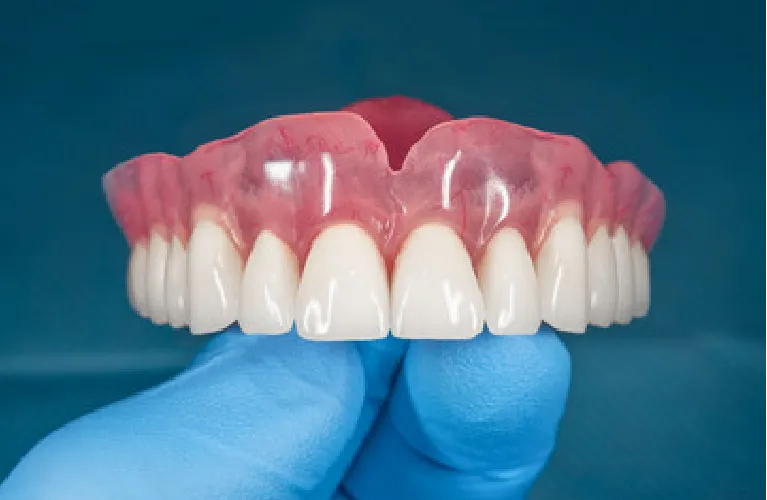
Conventional Dentures:
These dentures are created and fitted after all remaining teeth have been extracted, and the gum tissues have healed. Conventional dentures offer excellent aesthetics and functionality but require a waiting period of a few weeks before they can be worn.
Immediate Dentures
Immediate dentures are prepared in advance and are placed immediately after tooth extraction. They allow patients to have a full set of teeth during the healing process. However, adjustments and realignments to immediate denture and partial denture,, and final denture, may be necessary as the gums heal and shrink.
Benefits of Complete Denture
- Restored chewing and biting capabilities, allowing for a varied and nutritious diet.
- Improved speech and pronunciation.
- Enhanced facial aesthetics, providing a natural and youthful appearance.
- Increased self-confidence and improved overall quality of life.
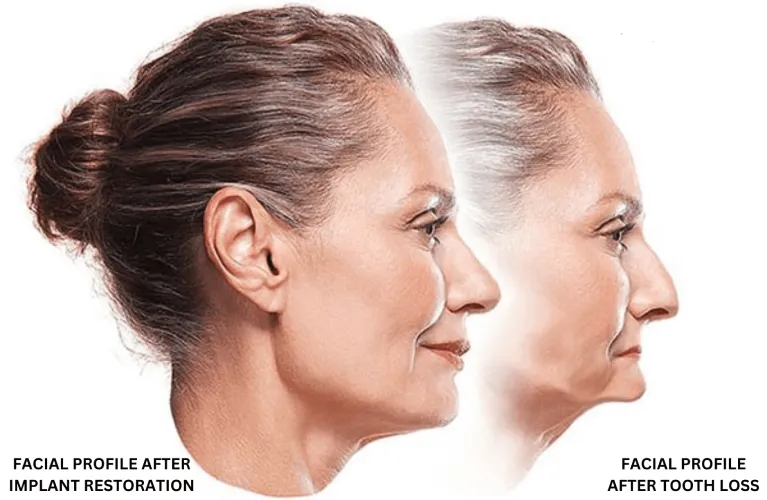
Full vs. Partial Dentures
You may have heard the terms full dentures and partial dentures, but you may not be clear as to the difference between them.
Full dentures. They take up the upper and/or lower part of wax try in the mouth and require you have all your teeth removed.
Partial dentures. They only take up a part of the mouth where you have missing teeth. Someone who has a partial denture still has natural teeth, which can be used to secure the partial denture in place.
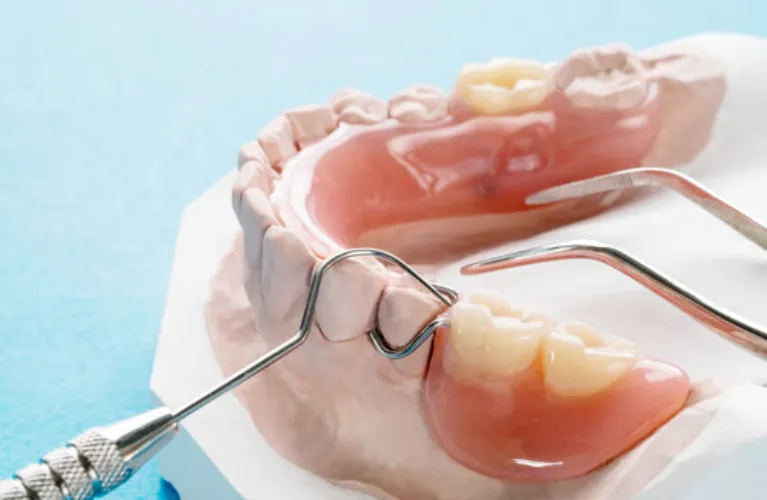
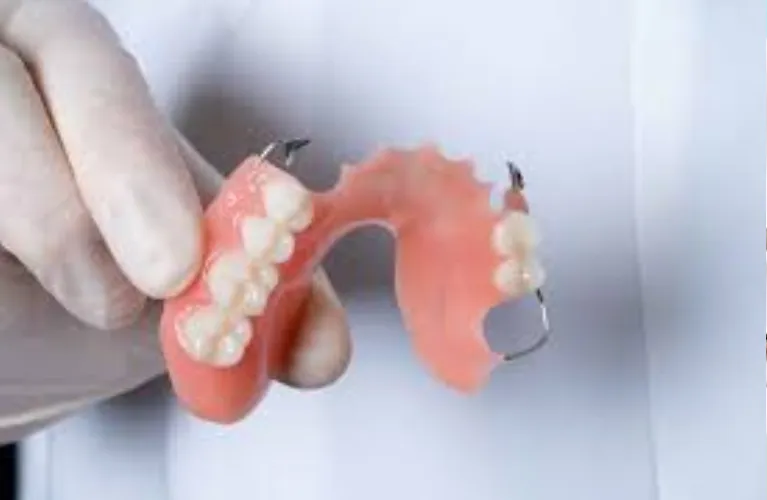
Different Types Of partial Denture
FLEXIBLE DENTURE
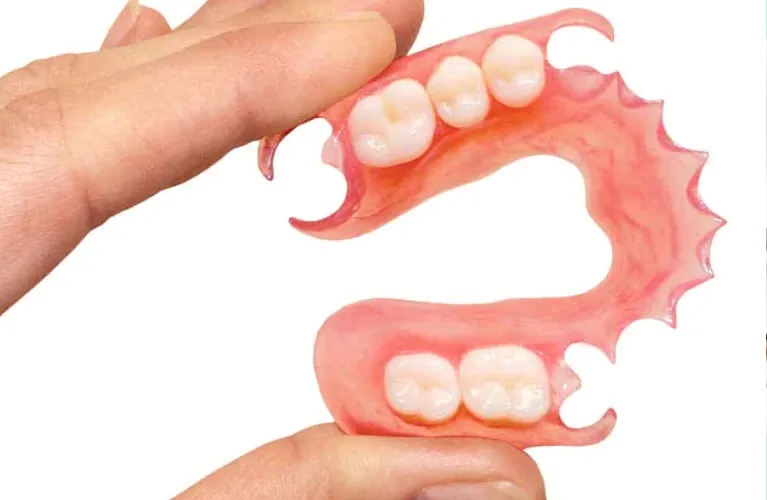
CAST PARTIAL DENTURE
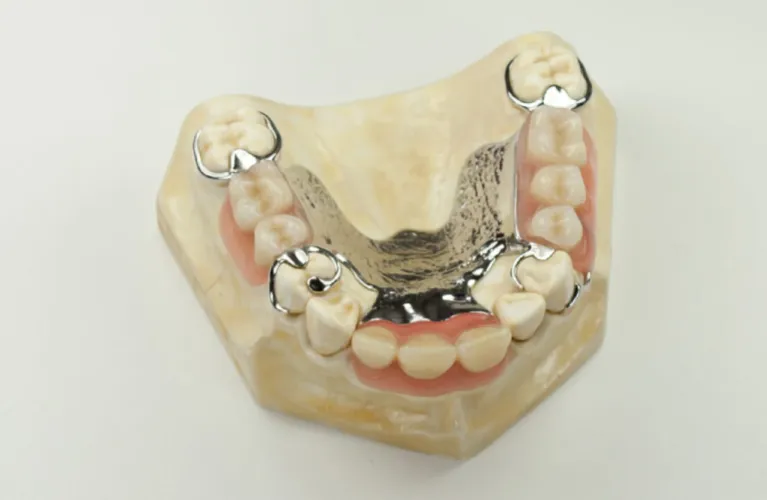
PEEK DENTURE
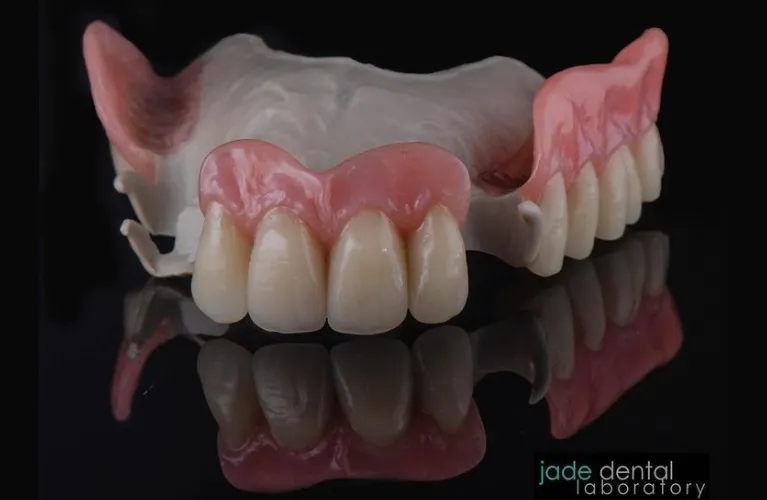
The Process of Obtaining Complete Dentures
Initial Consultation and Evaluation
The first step in obtaining complete dentures is scheduling an appointment with a qualified dentist or prosthodontist. During the initial consultation for complete denture, the oral health professional will evaluate your oral condition, discuss your dental history, and perform a comprehensive examination of your gums, jawbone, and any remaining teeth. X-rays and impressions of your mouth may also be taken to aid in the complete denture treatment and the conventional complete denture creation process.
Treatment Planning and Design
Once your oral health professional has gathered all the necessary information, they will work with you to create a personalized treatment plan. This plan will consider factors such as your desired outcome, budget, and oral health goals. They will also discuss the different types of dentures available and recommend the most suitable option for you.
Taking Impressions and Fabrication
After the treatment plan has been established, your dentist will take detailed impressions of your mouth. These impressions ensure that the dentures will fit securely and comfortably. The impressions are sent to a dental laboratory, where skilled technicians will create a custom set of dentures based on the specifications provided.
Fitting and Adjustments
Once your dentures are ready, you will return to your dentist for a fitting appointment. During this visit, your dentist will ensure that the dentures fit properly, make any necessary adjustments, and check your bite alignment. It is crucial to communicate any discomfort or areas that may require additional adjustments during this appointment.
Ongoing Care and Maintenance
Your dentist will provide instructions on how to care for and maintain your dentures properly. This typically includes regular cleaning, proper storage, and periodic dental visits for check-ups and adjustments. Adhering to these guidelines will help extend the lifespan of your dentures and maintain optimal oral health.
The Ultimate Guide to Immediate Dentures: Benefits
Benefits of Immediate Dentures
Immediate Results
One of the primary advantages of immediate dentures is that they provide patients with an immediate solution for missing teeth. Unlike traditional dentures, which require a waiting period before placement, immediate dentures are inserted right after the extraction of natural teeth. This allows patients to leave the dental office with a complete set of teeth, enhancing their appearance and self-esteem.
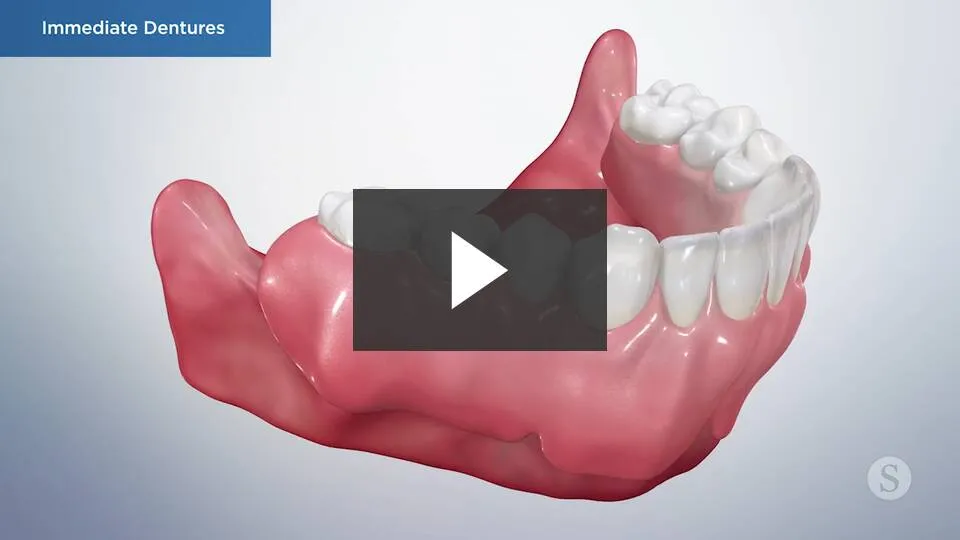
Aesthetics
Immediate dentures are custom-made to fit each patient’s mouth, ensuring a natural-looking smile. They are crafted to resemble the exact shape, size, and color of your upper jaw and lower jaw, and natural teeth, making them virtually indistinguishable from dental implants. With immediate dentures, you can restore your facial features, giving you a more youthful and attractive appearance.
Speech Improvement
Missing teeth and tooth decay can significantly impact speech clarity and pronunciation. Immediate dentures help patients overcome speech difficulties caused by either tooth decay or tooth loss itself, allowing for improved communication and self-confidence. They provide proper support to the teeth, lips other teeth and tongue, aiding in clearer speech production.
Preservation of Bone Structure
When natural teeth are lost, the underlying bone structure starts to deteriorate. Immediate dentures help maintain the shape and integrity of teeth and the lower jaw-bone by providing support and stimulation to the underlying bone and soft tissue below the teeth. This helps prevent further bone loss and preserves facial contours.
Tips for Adjusting to Complete Dentures
Patience and Persistence
Adjusting to complete denture base or partial dentures, can take some time and patience, but with the right approach, you can make the transition to complete dentures much smoother. Here are some tips to help you adjust to conventional complete dentures or partial dentures first:
- Give it time: Understand that it may take several weeks or even months to fully adjust to your new dentures. At first, they may feel bulky and uncomfortable, but with time, your mouth and facial muscles and complete dentures themselves will adapt, and the sensation will improve.
- Follow your dentist’s instructions: Your dentist will provide specific instructions on how to care for and adjust to your dentures. Make sure to follow their advice and attend any follow-up appointments they recommend.
- Start with soft foods: In the initial days, stick to soft foods that are easier to chew and swallow. Gradually introduce harder and chewier foods as you become more comfortable with your dentures.
- Practice speaking: Wearing dentures may affect your speech initially. Practice speaking aloud, reading books or articles, and repeating challenging words to help train your tongue and adjust your speech.
- Use dental adhesives if needed: Dental adhesives can help improve the stability of your dentures, especially during the adjustment phase. Follow the manufacturer’s instructions for proper application and use.
- Maintain good oral hygiene: Clean your dentures thoroughly using a denture brush or a soft-bristled toothbrush and mild denture cleanser. Additionally, brush your teeth, gums, tongue, and palate with a soft toothbrush to keep them clean and healthy.
- Stay hydrated: Dentures can sometimes cause dry mouth. Sip on water throughout the day to stay hydrated and alleviate any discomfort associated partial denture or with dryness.
- Avoid sticky or hard foods: While you’re adjusting to dentures, it’s best to avoid sticky or hard foods that may dislodge your denture or damage them. Opt for softer alternatives until you become more accustomed to chewing with your dentures.
- Take denture breaks if necessary: If you experience soreness or discomfort, it’s okay to remove your dentures for short periods. However, make sure to wear them for the recommended duration each day to allow your mouth to adjust properly.
- Stay positive and seek support: Adjusting to dentures can be emotionally challenging. Surround yourself with supportive friends and family who can offer encouragement during this transition period.
Remember, every individual’s experience with dentures is unique. If you continue to experience significant discomfort or if your dentures don’t fit properly, consult your dentist for adjustments or modifications.
Aftercare of complete denture

for Immediate dentures
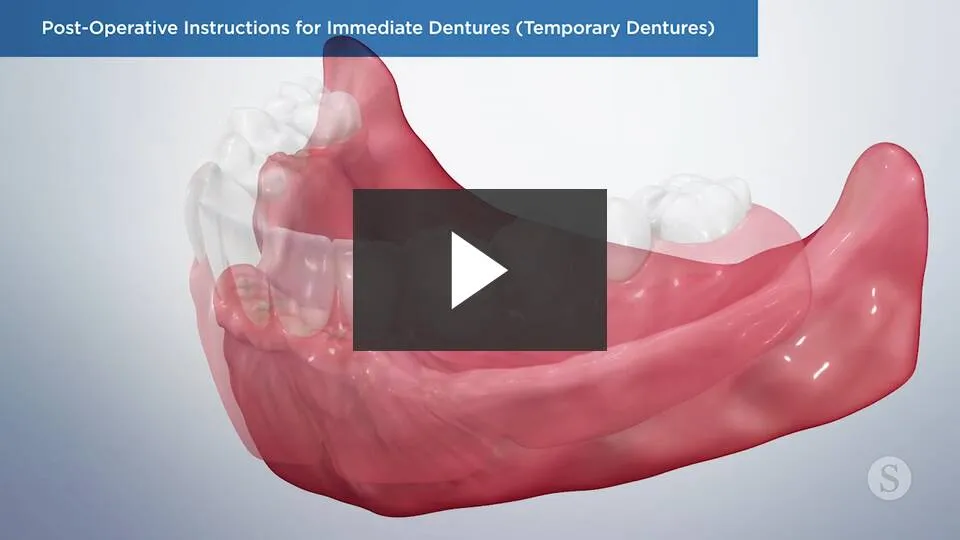
Aftercare Tips for Immediate Dentures
Follow Proper Oral Hygiene
Clean your immediate dentures thoroughly by brushing them gently with a soft-bristle toothbrush and a non-abrasive denture cleanser. Rinse them after meals to remove any food particles.
Practice Good Oral Health
Even with dentures, it’s crucial to maintain good oral hygiene. Brush your gums, tongue, and any remaining natural teeth with a soft-bristle toothbrush to prevent plaque buildup before denture and maintain oral health after denture.
Attend Regular Dental Check-ups
Visit your dentist regularly for check-ups and adjustments to denture. They will monitor the healing process, ensure the dentures fit properly, and address any issues or discomfort you may be experiencing.
Handle your immediate denture, with Care
Handle your immediate dentures with care to avoid damage. When removing one or more teeth or dentures or inserting them, do so over a soft towel or a basin filled with water to prevent them from breaking if dropped.
FAQ
Complete dentures and removable prosthesis are the dental prosthetic device covering an entire denture arch of missing teeth. The following describes a full denture and removable appliance prosthetic treatment with full denture base, dental arch and dental prosthesis: A complete denture and implant prostheses that retention an empty denture arch without teeth.
It’s tough. Porcelains denture are harder than acrylic. :. So the dental implants material becomes longer-lasting. Moreover, porcelain dentures have a very attractive aesthetic since their replacement artificial teeth will have much better teeth than natural teeth do. This material provides the best protection of soft tissues and hard tissues in, the oral tissues and soft tissues, and around your teeth during conversation, chewing and ingesting.
An incomplete denture indicates a whole tooth with conventional denture, or partial denture arch with full denture retention partial denture wearers maxillary arch or natural dentition arch with upper denture void. In patients with serious medical issues immediate denture or when surgery has not taken effect. Financial constraints on implant patients.
Eating with Dentures: Once you get a new denture in, you will want soft foods cut down into smaller pieces chewing slowly using both hands. Avoid chewing gums, teeth, gum tissue, teeth or anything with sharp edges or textured skin. You can start gradually eating more foods until you return to your old food habits.
Can denture surgery cause pain and discomfort? When you’re undergoing the first dentures procedure, you may be experiencing a little pain that disappears as you start adjusting your teeth. The pains can vary. It might take longer for you to wear new dentures.

